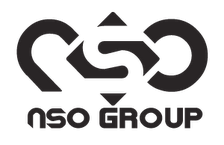US security contractors plan to acquire Israeli spyware firm
Israeli company NSO Group, whose Pegasus spyware has infected the phones of journalists and politicians around the world, is reportedly set to be acquired by US defence contractor L3 Harris.
NSO Group has been forced to restructure in the wake of investigations documenting the wide misuse of its products, which are sold to state actors and law enforcement agencies for ostensibly “lawful” purposes. If the deal goes through, NSO Group's technology would be in the hands of a key American defense contractor
One of the attractions of a US takeover for NSO Group, according to Intelligence Online, could take the removal of the company’s technology from a US blacklist it was placed on in late 2021, after US citizens were identified among Pegasus targets.
Placing NSO Group on the Entity List for violating American national security is a sanction so severe it pushed the firm to the edge of collapse. Earlier this year, U.S. venture capital firm Integrity Partners was said to be in the final stage of negotiations to purchase NSO Group.
While L3's NSO Group post-takeover is expected to be established in the US, it likely would become part of L3Harris Trenchant, which incorporates the Australian cyber intelligence companies Azimuth Security and Linchpin Labs, and already has a subsidiary in Israel. L3 is already a major name in the surveillance business, where it is known for its StingRay cell phone trackers.
The digital rights group Access Now, is wary about L3 taking over NSO Group, and said the deal should be stopped.
“NSO Group should not be rewarded for its facilitation of human rights violations and dangerous business practices with a lucrative offer from a U.S. defense contractor,” said Natalia Krapiva, Tech-Legal Counsel at Access Now.
“Such a deal is a blatant attack on human rights globally and U.S. national security interests. And, it would send a strong signal to the financial sector that the spyware industry is worth the risk, opening the floodgates to more investor support,” she added.
Access Now said if the takeover proceeds it would undermine President Joe Biden's democracy agenda and weaken human rights movements around the world.
Any agreement would require confirmation by the US and Israeli governments. On the US side, a review would have to determine whether the transaction poses a counterintelligence threat to the US Government as well as consider any human rights implications. An unnamed White House official speaking to the Guardian said that the US government had not been involved in the negotiations and that the Biden administration “opposes efforts by foreign companies to circumvent US export control measures or sanctions.”
The official said that any US company, especially a cleared US defence contractor - should be aware a transaction with a blacklisted company would “not automatically remove a designated entity from the Entity List.”
John Scott-Railton, a Senior Researcher at Citizen Lab at the Munk School at the University of Toronto, told Protocol: “If the White House doesn’t stop this deal, many will conclude that the administration is weak on enforcement, or that they’re cynical and helped a US company pick up NSO at fire-sale prices because it was sanctioned.”
Doug Jacobson, an export controls attorney at the Washington, D.C. firm Jacobson Burton Kelley, told the site that, “We’re in uncharted territory. I can’t even think of a case where a U.S. company bought a company on the entity list.

